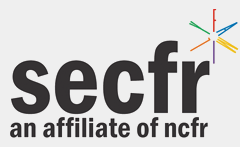Proposal Focus
Research
Presentation Type
Presentation
Abstract
95% of adoption in the United States are open adoptions (Siegel & Smith, 2012). Past research has focused on the satisfaction of the adoptive parents, birth mother and adoptee in open adoption (Colaner & Scharp, 2016). However, there is a gap in research considering communication within the open adoption relationship (Grotevant, 2009). This qualitative phenomenological study sought to understand the experiences of birth mothers and adoptive parents in open adoption relationships as well as determine what is helpful and/or harmful within this relationship. The researchers conducted 20 semi-structured interviews with birth mothers and adoptive parents. Through open coding, key findings included a commonality of strong emotions and a consistent emphasis on the adoptee, as well as the benefit of healthy communication, boundaries and a relationship pre-placement. Based on the findings and limitations of this study recommendations were made for professionals, birth mothers, adoptive parents and future research.
Keywords
Open adoption, communication, birth mother, adoptive parents
Location
Wyndsor II
Start Date
3-4-2020 8:45 AM
End Date
3-4-2020 9:55 AM
Open Adoption: An Expansion of Family
Wyndsor II
95% of adoption in the United States are open adoptions (Siegel & Smith, 2012). Past research has focused on the satisfaction of the adoptive parents, birth mother and adoptee in open adoption (Colaner & Scharp, 2016). However, there is a gap in research considering communication within the open adoption relationship (Grotevant, 2009). This qualitative phenomenological study sought to understand the experiences of birth mothers and adoptive parents in open adoption relationships as well as determine what is helpful and/or harmful within this relationship. The researchers conducted 20 semi-structured interviews with birth mothers and adoptive parents. Through open coding, key findings included a commonality of strong emotions and a consistent emphasis on the adoptee, as well as the benefit of healthy communication, boundaries and a relationship pre-placement. Based on the findings and limitations of this study recommendations were made for professionals, birth mothers, adoptive parents and future research.

